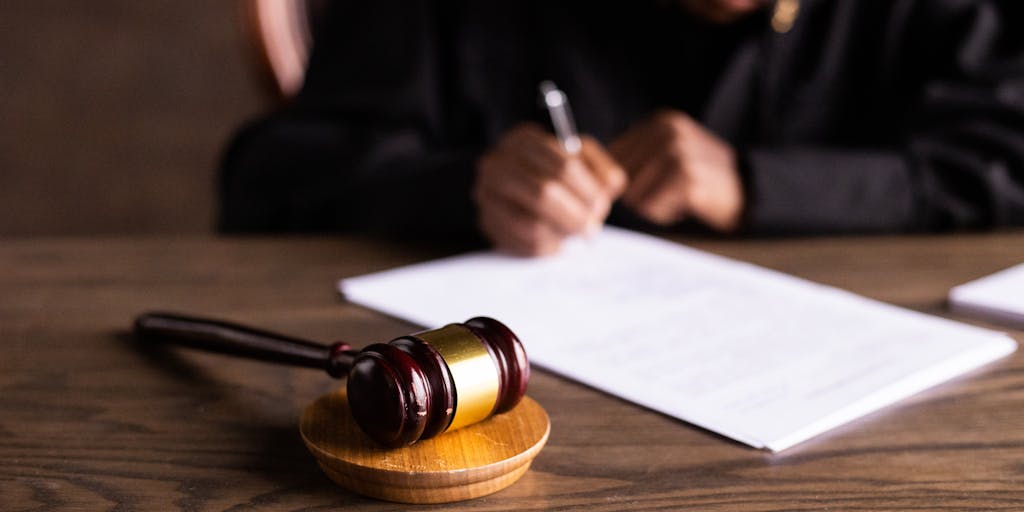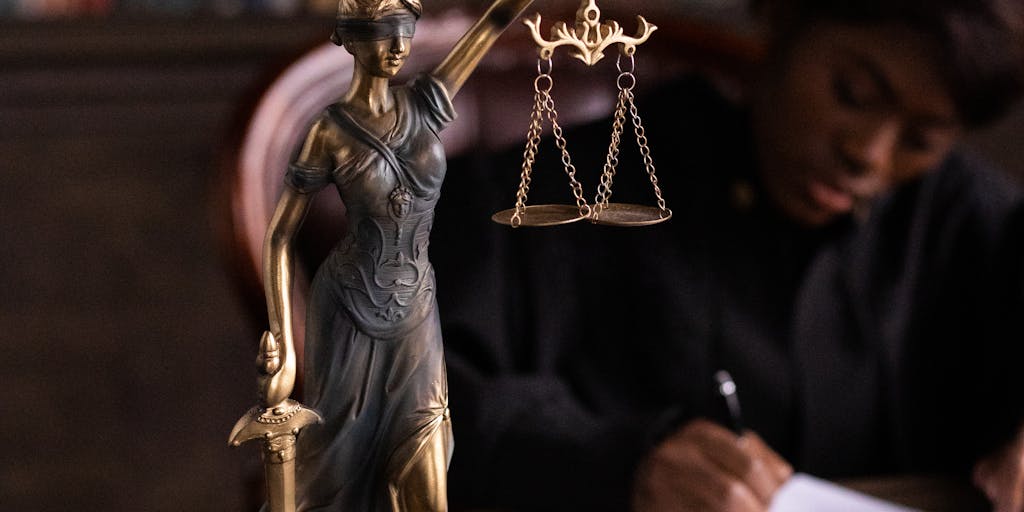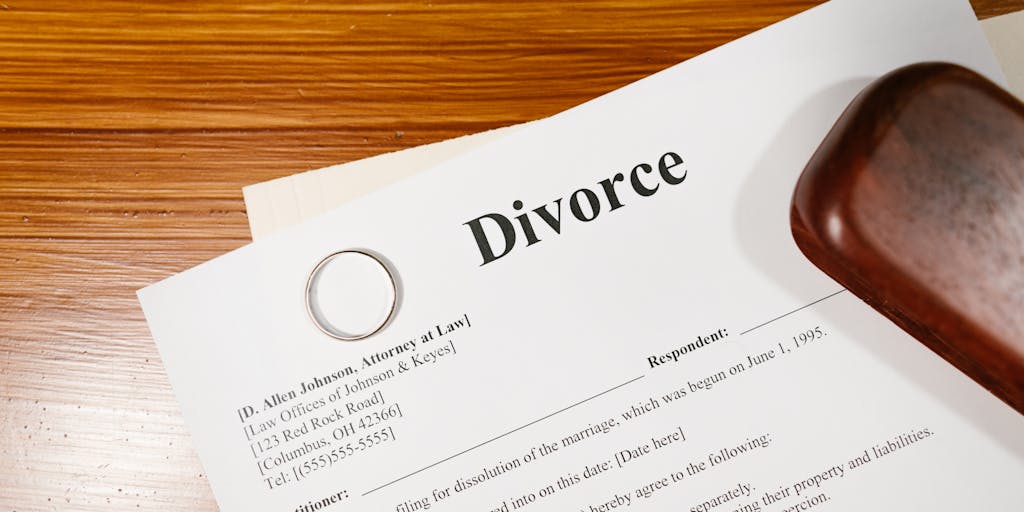When you think of high-paying professions, lawyers often top the list. But what does it really mean to be a lawyer in Italy, and how much can one expect to earn in this esteemed profession? Let’s dive into the world of legal salaries in Italy, exploring the nuances that come with this career path.
How much does a Lawyer make in Italy?

The salary of a lawyer in Italy can vary significantly based on several factors, including experience, specialization, and location. On average, a lawyer in Italy earns between €30,000 and €60,000 annually. However, this figure can soar for those who have established themselves in the field or who work in prestigious law firms.
For instance, a newly qualified lawyer might start at the lower end of the scale, while those with a decade or more of experience, especially in lucrative fields like corporate law or intellectual property, can earn upwards of €100,000 or more. In fact, some of the highest-paid lawyers in Italy, particularly those working in major cities like Milan or Rome, can command salaries that exceed €200,000 annually.
Lawyer Salaries
Let’s break down the factors that influence these salaries. First, consider the type of law practiced. Lawyers specializing in corporate law, mergers and acquisitions, or tax law often find themselves at the top of the pay scale. For example, a corporate lawyer working for a multinational company may earn a base salary of €150,000, with bonuses that can push their total compensation even higher.
Location also plays a crucial role. In bustling cities like Milan, where the financial and business sectors thrive, salaries tend to be higher compared to smaller towns. A lawyer in Milan might earn around €70,000 to €120,000, while their counterparts in less urbanized areas might see figures closer to €40,000 to €80,000.
Experience is another key factor. According to a study by the Italian National Bar Association, lawyers with over 15 years of experience can earn nearly double that of their less experienced peers. This is a testament to the value of expertise and reputation in the legal field.
Moreover, the type of employer matters. Lawyers working in prestigious law firms or as in-house counsel for large corporations typically earn more than those in public service or smaller practices. For instance, a partner in a top-tier law firm can earn significantly more than a public defender, reflecting the differences in clientele and case complexity.
In conclusion, while the average salary for lawyers in Italy may seem modest at first glance, the potential for high earnings is very real, especially for those who are willing to invest time and effort into their careers. Whether you’re considering a legal career or simply curious about the profession, understanding these dynamics can provide valuable insights into the world of law in Italy.
Starting salary after law school
Have you ever wondered what it’s like to step into the legal world right after law school? The journey begins with a significant milestone: graduation. In Italy, the starting salary for newly minted lawyers can vary widely, influenced by factors such as location, type of law practiced, and the prestige of the law school attended. On average, a fresh graduate can expect to earn between €25,000 and €35,000 annually. However, this figure can be much lower in smaller towns or much higher in bustling cities like Milan or Rome.
For instance, a graduate from a top-tier university like the University of Bologna may find themselves in a better position to negotiate a higher starting salary, especially if they have completed internships at reputable firms. According to a study by the Italian National Bar Association, graduates who intern at well-known firms during their studies often secure positions with starting salaries closer to €40,000 or more. This highlights the importance of networking and gaining practical experience while still in school.
First Year Attorney – Salary Advice
As you embark on your first year as an attorney, it’s natural to feel a mix of excitement and anxiety. The first year can be a steep learning curve, but it’s also a time to establish your professional identity. Salaries for first-year attorneys in Italy typically range from €30,000 to €50,000, depending on the firm and location. Larger firms, especially those with international ties, tend to offer more competitive salaries.
But here’s a little secret: your salary isn’t just about the numbers. It’s also about the experience you gain. Many seasoned lawyers recommend focusing on building your skills and reputation rather than solely chasing a higher paycheck. For example, a first-year attorney at a boutique firm specializing in intellectual property might earn less than their peers at a corporate law firm, but the specialized knowledge and connections they gain can lead to lucrative opportunities down the line.
Moreover, consider seeking mentorship from experienced attorneys. They can provide invaluable insights into salary negotiations and career advancement. Remember, it’s not just about what you earn in your first year; it’s about laying the groundwork for a successful career.
Salary range of lawyers
As you delve deeper into the legal profession, you might be curious about the broader salary landscape for lawyers in Italy. The salary range for lawyers can be quite expansive, reflecting the diversity of the legal field. On average, lawyers in Italy earn between €40,000 and €100,000 annually, but this can vary significantly based on several factors.
- Experience: Senior lawyers with years of experience can command salaries well over €100,000, especially in high-demand fields like corporate law or tax law.
- Location: As mentioned earlier, lawyers in major cities like Milan or Rome often earn more than those in smaller towns. The cost of living in these urban areas also plays a role in salary expectations.
- Specialization: Certain areas of law, such as mergers and acquisitions or intellectual property, tend to offer higher salaries due to their complexity and demand.
For instance, a corporate lawyer in Milan might earn upwards of €120,000, while a public defender in a smaller town may only make around €30,000. This disparity underscores the importance of choosing a specialization that not only interests you but also aligns with your financial goals.
In conclusion, while the financial rewards of a legal career in Italy can be substantial, it’s essential to remember that passion and dedication often lead to the most fulfilling paths. As you navigate your journey, keep your eyes on both your professional growth and your financial aspirations. After all, a successful career is about more than just the salary—it’s about making a difference in the lives of others and finding joy in your work.
Career progression in law
Have you ever wondered what it takes to climb the ladder in the legal profession? The journey of a lawyer in Italy is not just about mastering the law; it’s a dynamic path filled with opportunities, challenges, and, of course, the potential for significant financial rewards. Typically, a lawyer’s career begins with a solid educational foundation, often starting with a law degree from a reputable university, followed by a mandatory internship, known as a praticantato, which lasts about 18 months.
During this period, aspiring lawyers gain invaluable hands-on experience, working under the supervision of seasoned attorneys. This stage is crucial, as it not only hones their legal skills but also helps them build a network of professional contacts. After successfully passing the bar exam, they can officially practice law, but this is just the beginning.
As they gain experience, lawyers often specialize in various fields such as corporate law, criminal law, or family law. Specialization can significantly impact their career trajectory and earning potential. For instance, a corporate lawyer working with multinational companies may find themselves in high demand, leading to lucrative opportunities. According to a study by the Italian National Bar Council, lawyers who specialize in corporate law can earn up to 30% more than their generalist counterparts.
Moreover, many lawyers aspire to become partners in law firms, a position that not only comes with prestige but also a substantial increase in salary. The journey to partnership can take years, often requiring a combination of exceptional legal acumen, business development skills, and a strong client base. In larger firms, partners can earn six-figure salaries, making this a highly sought-after milestone in a lawyer’s career.
Why lawyers make so much?
Have you ever thought about the factors that contribute to the high salaries of lawyers? It’s a question that often arises, especially when considering the extensive education and training required to enter the field. One of the primary reasons lawyers command such high salaries is the complexity and importance of their work. Legal issues can have profound implications for individuals and businesses alike, and skilled lawyers are essential in navigating these challenges.
Moreover, the legal profession in Italy is characterized by a competitive landscape. With a growing number of law schools and graduates entering the market, those who can differentiate themselves through specialization or exceptional service often find themselves in high demand. For example, lawyers who focus on emerging fields like intellectual property or technology law are increasingly sought after, as businesses navigate the complexities of digital innovation.
Additionally, the financial stakes involved in legal matters can be substantial. A successful lawyer can save a company millions in litigation costs or help secure a lucrative contract, making their services invaluable. According to a report by the Italian Ministry of Justice, the average hourly rate for lawyers in Italy can range from €150 to €500, depending on their experience and specialization. This reflects not only their expertise but also the high value placed on their contributions to clients’ success.
Salary expectations for entry-level attorney in the area
If you’re considering a career in law, you might be curious about what you can expect to earn as an entry-level attorney in Italy. The truth is, while the potential for high earnings exists, starting salaries can vary widely based on several factors, including location, the size of the firm, and the area of specialization.
On average, an entry-level attorney in Italy can expect to earn between €25,000 and €40,000 per year. However, this figure can fluctuate significantly. For instance, those who land positions in prestigious law firms in cities like Milan or Rome may start at the higher end of this range, while those in smaller firms or less urban areas might find themselves at the lower end.
It’s also worth noting that many entry-level attorneys may not see their full earning potential immediately. Often, they start with lower salaries but have the opportunity for rapid advancement as they gain experience and prove their capabilities. A recent survey by the Italian Bar Association revealed that nearly 60% of young lawyers reported salary increases within their first three years of practice, highlighting the potential for growth in this rewarding profession.
Ultimately, while the initial salary may not be staggering, the long-term prospects in the legal field are promising, especially for those who are dedicated and willing to invest in their professional development. As you embark on this journey, remember that every step you take is a building block toward a successful and fulfilling career in law.
How much do Attorneys make?
Have you ever wondered what it takes to become one of the highest-paid attorneys in Italy? The legal profession is often associated with prestige and financial success, but the reality can be quite nuanced. In Italy, attorney salaries can vary significantly based on factors such as experience, specialization, and the type of law practiced. According to a recent survey by the Italian National Bar Association, the average annual salary for an attorney in Italy hovers around €40,000 to €60,000. However, this figure can be misleading, as it encompasses a wide range of legal professionals, from fresh graduates to seasoned experts.
For instance, a newly minted lawyer starting their career in a small firm might earn as little as €25,000, while those working in prestigious firms or specializing in high-stakes areas like corporate law or intellectual property can command salaries exceeding €100,000. This disparity highlights the importance of choosing the right path within the legal field. As you consider your own career trajectory, think about what areas of law excite you the most and how they align with your financial goals.
Attorney Salaries
When we delve deeper into attorney salaries in Italy, it’s essential to consider the various factors that influence earnings. For example, attorneys working in metropolitan areas like Milan or Rome typically earn more than their counterparts in smaller towns. This is largely due to the higher cost of living and the concentration of corporate clients in these cities.
Moreover, specialization plays a crucial role in determining salary. Attorneys who focus on lucrative fields such as mergers and acquisitions, tax law, or international arbitration often find themselves at the top of the pay scale. A study conducted by the Italian Association of Corporate Lawyers revealed that those specializing in corporate law can earn upwards of €150,000 annually, especially if they are part of a well-established firm.
It’s also worth noting that experience matters. Junior associates may start with modest salaries, but as they gain experience and build a reputation, their earning potential can skyrocket. For instance, a partner in a leading law firm can earn between €200,000 and €500,000, depending on their client base and the firm’s profitability. This progression underscores the importance of networking and continuous professional development in the legal field.
BIG 4 Pay in Italy
Now, let’s talk about the BIG 4—Deloitte, PwC, EY, and KPMG. These firms are not just accounting giants; they also have robust legal divisions that offer a unique blend of legal and business services. Working for one of the BIG 4 can be a lucrative career choice for attorneys in Italy. According to industry reports, entry-level salaries for legal consultants at these firms can start at around €40,000, but with experience, this can rise dramatically.
For example, a senior legal consultant at a BIG 4 firm can earn between €80,000 and €120,000, depending on their expertise and the complexity of the cases they handle. The appeal of these firms goes beyond salary; they offer extensive training, exposure to international clients, and the opportunity to work on high-profile projects. This environment can be incredibly rewarding for those looking to make a significant impact in the legal landscape.
However, it’s important to consider the work-life balance. The demanding nature of these roles often means long hours and high expectations. As you weigh your options, think about what kind of work environment suits you best. Are you drawn to the fast-paced world of corporate law, or do you prefer a more traditional legal practice? Your choice will ultimately shape your career and financial future.
Lawyer Practicing Salary in Italy

Have you ever wondered what it’s like to be a lawyer in Italy? The picturesque landscapes, rich history, and vibrant culture might make you think that practicing law here is a dream come true. But what about the financial aspect? How much do lawyers actually earn in this beautiful country? Let’s dive into the numbers and explore the realities of a lawyer’s salary in Italy.
€87,584 (EUR)
On average, a lawyer practicing in Italy earns around €87,584 per year. This figure can vary significantly based on several factors, including experience, location, and the type of law practiced. For instance, lawyers working in major cities like Milan or Rome often command higher salaries due to the cost of living and the concentration of corporate clients.
To put this into perspective, consider the story of Marco, a young attorney who started his career in a small law firm in Florence. Initially, he earned a modest salary, but as he gained experience and built a reputation, his income increased substantially. After five years, Marco transitioned to a larger firm in Milan, where he now earns over €100,000 annually. His journey illustrates how dedication and strategic career moves can lead to significant financial rewards in the legal profession.
Moreover, the legal field in Italy is diverse. Lawyers specializing in corporate law, intellectual property, or international law tend to earn more than those in family law or criminal defense. According to a study by the Italian National Bar Council, corporate lawyers can earn upwards of €120,000, especially if they work with multinational companies. This highlights the importance of choosing a specialization that aligns with both your interests and financial goals.
€42/hr
When we break it down to an hourly rate, lawyers in Italy earn approximately €42 per hour. This rate can fluctuate based on the lawyer’s experience and the complexity of the case. For example, a seasoned lawyer handling a high-stakes corporate merger might charge significantly more than a junior lawyer working on a straightforward divorce case.
Let’s take a moment to reflect on the implications of this hourly rate. Imagine you’re a client seeking legal advice. You might be surprised to learn that the expertise you’re paying for comes with years of education, training, and real-world experience. The legal profession in Italy requires a rigorous education, including a law degree and passing the bar exam, which can take several years. This investment in education is reflected in the hourly rates charged by lawyers.
Additionally, many lawyers in Italy work on a retainer basis or charge flat fees for specific services, which can provide clients with more predictable costs. This flexibility can be beneficial for both clients and lawyers, fostering a more collaborative relationship. As you consider the financial aspects of hiring a lawyer, remember that the value of their expertise often far outweighs the cost.
In conclusion, while the average salary of €87,584 and the hourly rate of €42 may seem daunting, they reflect the dedication and skill required to navigate the complexities of the legal system in Italy. Whether you’re considering a career in law or seeking legal assistance, understanding these financial dynamics can help you make informed decisions.
€5,929
When we think about the legal profession, images of high-stakes negotiations and courtroom dramas often come to mind. But what about the financial rewards that come with being a lawyer in Italy? The figure of €5,929 per month might not seem like a staggering amount at first glance, but it represents a significant earning potential for many legal professionals in the country. This average salary can vary widely based on factors such as experience, specialization, and the type of law practiced.
For instance, lawyers working in corporate law or intellectual property often command higher salaries due to the complexity and demand for their expertise. In contrast, those in public service or non-profit sectors may earn less, reflecting the different priorities and funding structures in these areas. It’s fascinating to consider how these dynamics play out in real life. Imagine a young lawyer just starting their career, navigating the challenges of the legal landscape while dreaming of that €5,929 monthly paycheck. It’s a journey filled with hard work, dedication, and a bit of luck.
Explore Our Salary Database
To truly understand the earning potential of lawyers in Italy, it’s essential to delve into comprehensive salary data. Our salary database offers a treasure trove of information, allowing you to explore various legal professions and their corresponding salaries. You might be surprised to learn that the highest-paid lawyers can earn significantly more than the average. For example, partners in prestigious law firms can make upwards of €15,000 per month, reflecting their years of experience and the value they bring to their firms.
Moreover, the database highlights regional differences in salaries. Lawyers in major cities like Milan and Rome often earn more than their counterparts in smaller towns, driven by the concentration of businesses and legal needs in urban areas. This insight can be particularly valuable for aspiring lawyers considering where to establish their careers. Are you drawn to the hustle and bustle of a big city, or do you prefer the charm of a quieter locale? Your choice could impact your earning potential significantly.
Average Salary Chart
Visualizing salary data can make it easier to grasp the nuances of legal earnings in Italy. An average salary chart can provide a clear snapshot of what different types of lawyers earn. Here’s a brief overview:
- Corporate Lawyers: €8,000 – €15,000 per month
- Criminal Defense Attorneys: €4,500 – €10,000 per month
- Family Lawyers: €3,500 – €7,000 per month
- Public Interest Lawyers: €2,500 – €5,000 per month
This chart not only highlights the disparities in earnings but also reflects the varying levels of demand for different legal services. It’s a reminder that while passion for the law is crucial, understanding the financial landscape can help you make informed career choices. As you consider your path in the legal field, think about what areas resonate with you. Are you motivated by the potential for high earnings, or is your passion for justice and advocacy your guiding star?
In conclusion, the journey to becoming a well-paid lawyer in Italy is multifaceted, influenced by specialization, location, and experience. Whether you’re just starting out or contemplating a career shift, understanding these dynamics can empower you to navigate your legal career with confidence and clarity.
Customize:
When we think about the legal profession, especially in a country as rich in history and culture as Italy, it’s easy to imagine a world of high-stakes negotiations, courtroom dramas, and the pursuit of justice. But what about the financial rewards that come with such a demanding career? If you’ve ever wondered how much lawyers in Italy can earn, you’re not alone. Let’s dive into the fascinating world of legal salaries in Italy, exploring the factors that influence earnings and the paths that lead to the highest pay.
Customize:
Imagine standing in a grand courtroom in Rome, the air thick with anticipation as a high-profile case unfolds. The lawyer at the center of it all commands not just respect but also a hefty paycheck. But what does it take to reach such heights? The journey to becoming one of the highest-paid lawyers in Italy is often paved with years of education, specialization, and a network of influential connections. It’s not just about the law; it’s about understanding the nuances of the legal landscape and positioning oneself strategically within it.
Salary Potential
So, what can you expect in terms of salary if you’re considering a legal career in Italy? The figures can be quite staggering, especially for those who make it to the top of their field. According to recent studies, the average salary for a lawyer in Italy hovers around €40,000 to €60,000 per year. However, this is just the tip of the iceberg.
For those who specialize in lucrative areas such as corporate law, intellectual property, or international arbitration, salaries can soar to impressive heights. In fact, top-tier lawyers in prestigious firms can earn upwards of €150,000 to €300,000 annually. Some even break the €500,000 mark, particularly if they are partners in a leading law firm or have built a strong personal brand.
But it’s not just about the numbers. The journey to these salaries often involves a combination of hard work, strategic career moves, and sometimes a bit of luck. For instance, a lawyer who starts in a small firm may find that moving to a larger, more prestigious firm can significantly boost their earning potential. Additionally, lawyers who take on high-profile cases or work with wealthy clients often see their income increase dramatically.
Moreover, the geographical location plays a crucial role in salary variations. Lawyers in major cities like Milan or Rome typically earn more than those in smaller towns. This is due to the concentration of businesses, international corporations, and affluent clients in these urban centers.
In conclusion, while the path to becoming one of the highest-paid lawyers in Italy is challenging, it is certainly achievable with the right mix of expertise, networking, and strategic career choices. As you consider this career path, think about what areas of law excite you the most and how you can position yourself to take advantage of the opportunities that lie ahead.
Estimated salary in 2030:
As we look ahead to 2030, the landscape of legal salaries in Italy is poised for significant changes. Current trends suggest that the highest-paid lawyers could see their earnings soar, potentially reaching upwards of €200,000 to €300,000 annually for those in prestigious firms or specialized fields. This projection is not just a shot in the dark; it’s based on a combination of factors including inflation, demand for legal services, and the evolving nature of law itself.
For instance, a recent study by the Italian National Bar Association highlighted that the demand for corporate lawyers, especially those with expertise in technology and intellectual property, is on the rise. As businesses increasingly navigate complex regulations and digital landscapes, lawyers who can provide guidance in these areas will command higher salaries. Imagine a lawyer who specializes in data protection laws—given the increasing importance of privacy in our digital age, their expertise will be invaluable, and their compensation will reflect that.
Moreover, the shift towards remote work and globalization means that lawyers in Italy may also compete for international clients, further driving up potential earnings. So, if you’re considering a career in law or are already on that path, it’s worth thinking about how you can position yourself in these emerging fields to maximize your earning potential by 2030.
Italy Cost of Living Score:
When discussing salaries, it’s crucial to consider the cost of living in Italy, which varies significantly from one region to another. For example, living in Milan or Rome, where the legal market is most competitive, can be quite expensive. The cost of living index in these cities is notably higher than in smaller towns or rural areas. According to Numbeo, a cost of living comparison website, the cost of living in Milan is approximately 30% higher than in cities like Bologna or Florence.
This disparity means that while a lawyer in Milan might earn a higher salary, they also face higher expenses. Rent, dining, and transportation can take a substantial bite out of their income. For instance, a one-bedroom apartment in the city center of Milan can cost around €1,500 per month, while the same apartment in a smaller city might only be €800. Therefore, when evaluating the potential salary of a lawyer, it’s essential to factor in these living costs to get a true sense of financial well-being.
Lawyer Practicing Job Description
What does a day in the life of a lawyer in Italy look like? The job description can vary widely depending on the area of law one practices. For instance, a corporate lawyer may spend their days drafting contracts, negotiating deals, and advising clients on compliance with regulations. On the other hand, a criminal defense attorney might find themselves in courtrooms, passionately defending their clients’ rights.
Regardless of the specialization, there are some common threads that bind all lawyers together. They must possess strong analytical skills, excellent communication abilities, and a deep understanding of the law. According to a report by the Italian Bar Association, lawyers are also increasingly required to be tech-savvy, as digital tools become integral to legal research and case management.
Moreover, the emotional aspect of practicing law cannot be overlooked. Many lawyers find themselves in high-stress situations, dealing with clients who are often facing significant life challenges. This requires not only legal expertise but also empathy and strong interpersonal skills. Imagine a family lawyer helping a client navigate a difficult divorce; the ability to connect on a human level can make all the difference in providing effective representation.
In summary, being a lawyer in Italy is not just about understanding the law; it’s about being adaptable, compassionate, and ready to tackle the complexities of modern legal challenges. As we move towards 2030, those who can blend these skills with specialized knowledge will likely find themselves among the highest earners in the profession.
Take the guess work out of setting pay
When it comes to determining salaries for lawyers in Italy, the landscape can feel a bit like navigating a maze. With various factors influencing pay, including experience, specialization, and location, it’s essential to have a clear understanding of what to expect. Imagine you’re a law firm partner trying to attract top talent; how do you ensure your compensation packages are competitive? This is where understanding the salary benchmarks becomes crucial.
According to a recent survey by the Italian National Bar Association, the average salary for lawyers in Italy varies significantly based on their level of experience and the type of law they practice. For instance, newly qualified lawyers can expect to earn around €30,000 to €50,000 annually, while those with several years of experience can command salaries ranging from €60,000 to €100,000. However, the highest-paid lawyers, particularly those in corporate law or specialized fields like intellectual property, can earn upwards of €200,000 or more.
Moreover, the location plays a pivotal role in salary variations. Lawyers working in major cities like Milan or Rome often earn more than their counterparts in smaller towns. This is largely due to the higher cost of living and the concentration of corporate clients in urban areas. So, if you’re considering a career in law or looking to hire, understanding these nuances can help you make informed decisions.
Salaries By Country
It’s fascinating to see how Italian lawyers’ salaries stack up against their peers in other countries. For instance, in the United States, the average salary for a lawyer can exceed €120,000, with top-tier firms offering even more. In contrast, countries like Spain and Portugal report lower averages, with salaries hovering around €40,000 to €70,000 for experienced lawyers.
Here’s a quick comparison of average lawyer salaries in various countries:
- Italy: €60,000 – €200,000 (depending on experience and specialization)
- United States: €120,000 – €300,000 (top firms)
- United Kingdom: €70,000 – €150,000
- Germany: €60,000 – €120,000
- Spain: €40,000 – €70,000
This comparison highlights the competitive nature of the legal profession globally. If you’re a lawyer in Italy, understanding these figures can help you negotiate better pay or decide whether to seek opportunities abroad.
Similar Job Titles
When discussing the highest-paid lawyers, it’s also important to consider similar job titles that might offer lucrative opportunities. For instance, corporate lawyers, who specialize in business law, often find themselves at the top of the salary scale. They deal with mergers, acquisitions, and compliance issues, which are critical for businesses. Similarly, tax lawyers, who navigate the complexities of tax law, can also command high salaries due to their specialized knowledge.
Here are a few job titles that often see high compensation:
- Corporate Lawyer: Focuses on business transactions and corporate governance.
- Tax Lawyer: Specializes in tax law and helps clients minimize tax liabilities.
- Intellectual Property Lawyer: Protects clients’ intellectual property rights, often in tech and creative industries.
- Litigation Lawyer: Represents clients in court, often earning high fees for complex cases.
- Real Estate Lawyer: Deals with property transactions and disputes, especially in high-value markets.
As you can see, the legal field is diverse, and each specialization offers unique challenges and rewards. If you’re contemplating a career path or looking to pivot within the legal profession, consider how these roles align with your interests and financial goals.
About Italy
Italy, a country renowned for its rich history, stunning landscapes, and vibrant culture, is also home to a complex legal system that plays a crucial role in its societal framework. With a population of over 60 million, Italy’s legal landscape is as diverse as its regions, from the bustling streets of Milan to the historic charm of Florence. The legal profession here is not just about courtroom battles; it encompasses a wide range of specialties, including corporate law, family law, and international law, each with its own unique challenges and rewards.
As we delve into the world of legal salaries in Italy, it’s essential to understand the broader context. The Italian legal system is influenced by civil law traditions, which means that laws are codified and judges play a more interpretative role compared to common law systems. This structure creates a unique environment for lawyers, impacting their career trajectories and earning potential.
What is the Average Lawyer Salary In Italy for 2025

As we look ahead to 2025, the average salary for lawyers in Italy is projected to reflect both the evolving legal landscape and the economic conditions of the country. According to recent studies, the average salary for a lawyer in Italy is expected to be around €40,000 to €60,000 per year. However, this figure can vary significantly based on several factors, including location, area of specialization, and years of experience.
For instance, lawyers working in major cities like Rome and Milan tend to earn higher salaries compared to their counterparts in smaller towns. A corporate lawyer in Milan, for example, might command a salary upwards of €80,000, especially if they are working for a prestigious law firm or handling high-profile cases. In contrast, a family lawyer in a rural area may earn closer to the lower end of the spectrum.
Moreover, the legal profession in Italy is known for its competitive nature. Many young lawyers start their careers as interns or associates in law firms, where they can expect to earn between €1,500 and €2,500 per month. As they gain experience and build their reputations, their earning potential increases significantly.
How Much Does a Lawyer Earn In Italy?
When we break down the earnings of lawyers in Italy, it’s fascinating to see how various factors come into play. For example, lawyers specializing in tax law or intellectual property often find themselves at the higher end of the salary scale. According to a report by the Italian National Bar Council, these specialists can earn between €70,000 and €120,000 annually, reflecting the high demand for their expertise in a globalized economy.
Additionally, the size and prestige of the law firm can greatly influence a lawyer’s salary. Large international firms often offer lucrative compensation packages, including bonuses and benefits, which can significantly boost a lawyer’s overall earnings. In contrast, smaller firms may provide a more modest salary but can offer a more personalized work environment and closer client relationships.
It’s also worth noting that many lawyers in Italy choose to work independently or start their own practices. While this path can be rewarding, it often comes with financial uncertainty, especially in the early years. However, successful independent lawyers can eventually earn salaries comparable to those in larger firms, particularly if they establish a strong client base.
In conclusion, the journey of a lawyer in Italy is as diverse as the country itself. Whether you’re drawn to the bustling legal scene in a major city or the intimate setting of a small-town practice, the potential for a rewarding career is certainly within reach. As we look toward 2025, understanding these dynamics will be crucial for anyone considering a future in law in Italy.
Lawyer Salary In Italy Based On Experience Level
Have you ever wondered how experience shapes a lawyer’s salary in Italy? It’s a fascinating journey, one that reflects not just the individual’s expertise but also the evolving landscape of the legal profession. In Italy, as in many countries, experience plays a pivotal role in determining a lawyer’s earning potential.
Entry-level lawyers, often fresh out of law school, can expect to earn around €25,000 to €35,000 annually. While this may seem modest, it’s important to remember that this is just the beginning. As they gain experience, their salaries can increase significantly. For instance, after five to ten years in practice, a lawyer’s salary can rise to between €50,000 and €80,000. This leap is often attributed to the accumulation of skills, a growing client base, and the ability to handle more complex cases.
But what about those who have dedicated decades to their craft? Senior lawyers, particularly those in prestigious firms or specialized fields, can command salaries exceeding €100,000. According to a study by the Italian National Bar Council, partners in top law firms can earn upwards of €200,000, especially if they have a strong reputation and a robust network.
It’s not just about the numbers, though. The journey of a lawyer is filled with challenges and triumphs, and each year of experience adds layers to their professional identity. As you reflect on this, consider how your own career path has shaped your earning potential and professional growth.
Lawyer Salary In Italy Based On Education Level
Education is another cornerstone of a lawyer’s earning potential in Italy. The path to becoming a lawyer typically begins with obtaining a law degree, which is a prerequisite for taking the bar exam. But does the prestige of your educational institution impact your salary? Absolutely!
Graduates from top universities, such as the University of Bologna or the University of Milan, often find themselves in a favorable position when entering the job market. These institutions not only provide a solid legal foundation but also offer networking opportunities that can lead to lucrative positions. For instance, a graduate from a prestigious university may start their career with a salary closer to €40,000, compared to €25,000 for those from lesser-known institutions.
Moreover, pursuing further education, such as a Master’s degree or specialized certifications, can significantly enhance a lawyer’s marketability. Experts suggest that lawyers with additional qualifications can see their salaries increase by 20% to 30%. This is particularly true in specialized fields like tax law or intellectual property, where advanced knowledge is highly valued.
As you consider your own educational journey, think about how it has influenced your career choices and opportunities. Education is not just a stepping stone; it’s a powerful tool that can shape your professional destiny.
Lawyer Salary In Italy Based On Organisation
The organization a lawyer works for can dramatically influence their salary. In Italy, the legal landscape is diverse, encompassing everything from small boutique firms to large multinational corporations. Each type of organization offers different compensation structures and benefits.
For instance, lawyers working in large international firms often enjoy the highest salaries, with starting salaries around €60,000 and potential earnings exceeding €150,000 for partners. These firms typically handle high-stakes cases and complex transactions, which require a high level of expertise and experience.
On the other hand, lawyers in smaller firms or public sector roles may earn less, with salaries ranging from €30,000 to €70,000. However, these positions often come with their own set of rewards, such as a better work-life balance and the opportunity to build close relationships with clients.
Additionally, in-house counsel positions within corporations are becoming increasingly popular. These roles often offer competitive salaries, typically ranging from €50,000 to €100,000, along with benefits like bonuses and stock options. The shift towards in-house legal teams reflects a growing trend where companies prefer to have legal expertise on their payroll rather than relying solely on external firms.
As you think about the various paths a legal career can take, consider how the organization you choose can shape not just your salary, but your overall job satisfaction and professional growth. Each choice you make can lead to unique opportunities and experiences that define your career.
Italian partners top world pay league

When we think about the legal profession, images of sharp suits, high-stakes negotiations, and impressive courtrooms often come to mind. But what about the financial rewards that come with such a demanding career? In Italy, the landscape of lawyer salaries is as diverse as its rich cultural heritage, and it’s fascinating to see how Italian partners are not just thriving locally but are also making waves on the global stage.
According to a recent report by the International Legal Market, Italian law firm partners are among the highest-paid in the world. This is particularly striking when you consider the economic challenges that many countries face. So, what makes these legal professionals stand out? It’s a combination of factors, including the prestige of their firms, the complexity of the cases they handle, and the high demand for specialized legal services.
For instance, firms like BonelliErede and Chiomenti have established themselves as leaders in the legal field, attracting top-tier clients and cases that command hefty fees. A partner at one of these firms can earn upwards of €1 million annually, a figure that places them in the upper echelons of the global legal pay scale. This is not just about the money; it reflects the level of expertise and the critical role these lawyers play in navigating complex legal landscapes.
Moreover, the Italian legal market is evolving. With the rise of technology and globalization, lawyers are increasingly required to adapt to new challenges, such as international regulations and digital privacy laws. This shift has created a demand for lawyers who are not only knowledgeable but also innovative. As a result, those who can offer unique insights and solutions are often rewarded handsomely.
But let’s not forget the human element. Many of these partners have spent years building their reputations, often starting from humble beginnings. Their journeys are filled with late nights, rigorous study, and a relentless pursuit of excellence. It’s a reminder that while the financial rewards are significant, they come with hard work and dedication.
Lawyer Salary In Italy Based On Positions
Have you ever wondered how much different types of lawyers earn in Italy? The answer can vary significantly based on their position within a firm. For instance, a newly qualified lawyer, often referred to as an “associato,” typically earns between €30,000 and €50,000 per year. While this may seem modest, it’s important to remember that this is just the starting point in a potentially lucrative career.
As lawyers gain experience and move up the ranks, their salaries can increase dramatically. Senior associates can earn between €70,000 and €120,000, depending on the firm and their area of specialization. For example, those working in corporate law or mergers and acquisitions often find themselves on the higher end of the salary spectrum due to the complexity and value of the transactions they handle.
Then we have the partners, who, as we discussed earlier, can earn well over €1 million. But what about those in specialized roles? For instance, lawyers who focus on intellectual property or tax law may also command high salaries, reflecting the specialized knowledge required in these fields. According to a study by the Italian Bar Association, lawyers in these niches can earn between €100,000 and €300,000 annually, depending on their expertise and client base.
It’s also worth noting that the size and reputation of the law firm play a crucial role in determining salary. Larger firms with international reach tend to offer higher compensation packages compared to smaller, local firms. However, smaller firms may provide a more intimate work environment and opportunities for rapid advancement, which can be appealing to many young lawyers.
Lawyer Salary In Italy Based On Cities
Have you ever thought about how your location can impact your salary? In Italy, the city where a lawyer practices can significantly influence their earnings. For instance, lawyers in major cities like Rome and Milan tend to earn more than their counterparts in smaller towns. This is largely due to the concentration of businesses, multinational corporations, and high-profile clients in these urban centers.
In Milan, often considered the financial capital of Italy, a corporate lawyer can earn an average salary of around €80,000 to €150,000, while in Rome, the average might be slightly lower, ranging from €70,000 to €130,000. However, the cost of living in these cities is also higher, which is an important factor to consider.
On the other hand, in smaller cities like Palermo or Florence, salaries can be significantly lower, with averages ranging from €40,000 to €70,000. Yet, many lawyers find that the quality of life, lower living costs, and the opportunity to build strong community ties can make these positions appealing.
Ultimately, whether you’re in a bustling metropolis or a charming provincial town, the legal profession in Italy offers a range of opportunities. The key is to find the right balance between salary, lifestyle, and personal fulfillment. After all, it’s not just about the paycheck; it’s about building a career that resonates with your values and aspirations.
Best Lawyers Announces 2024 Edition of The Best Lawyers in Italy™
Have you ever wondered who the top legal minds in Italy are? The annual release of The Best Lawyers in Italy™ is like a spotlight shining on the crème de la crème of the legal profession. This prestigious list, which has been a trusted resource for over three decades, recognizes outstanding lawyers across various practice areas. In 2024, the anticipation is palpable as the legal community eagerly awaits the announcement of those who have made the cut.
What makes this list so significant? It’s not just about the names; it’s about the rigorous peer-review process that underpins it. Lawyers are nominated by their peers, and then they undergo a meticulous evaluation based on their professional abilities, ethics, and overall reputation. This means that when you see a name on this list, you can be confident that they are not just good at what they do—they are among the best in the field.
For instance, in the 2023 edition, names like Giovanni De Luca and Francesca Rossi stood out, not only for their impressive track records but also for their contributions to legal scholarship and community service. Their recognition is a testament to their dedication and expertise, inspiring many young lawyers who aspire to reach similar heights.
As we look forward to the 2024 edition, it’s worth considering how these top lawyers influence the legal landscape in Italy. They often set trends in legal practice, advocate for important reforms, and mentor the next generation of attorneys. So, who will be the new faces on this prestigious list? Only time will tell, but one thing is certain: the legal community will be watching closely.
70.691 € (EUR)/yr
When we talk about the highest-paid lawyers in Italy, the figure of 70.691 € (EUR) per year often comes up. This number represents a significant income, but what does it really mean in the context of the legal profession? To put it into perspective, this salary is not just a reflection of the lawyer’s expertise; it also encompasses the complexity of the cases they handle, the clientele they serve, and the reputation they have built over the years.
For example, corporate lawyers, especially those working with multinational companies, can command salaries that far exceed this average. They often deal with high-stakes mergers and acquisitions, intellectual property rights, and international trade issues. Their ability to navigate these complex legal waters not only justifies their high salaries but also highlights the value they bring to their clients.
Moreover, the legal market in Italy is evolving. With the rise of technology and globalization, lawyers are increasingly required to adapt to new challenges. This adaptability can lead to higher earnings, as those who embrace change often find themselves at the forefront of their fields. So, while 70.691 € may be the average, the potential for earning more is certainly there for those willing to innovate and expand their skill sets.
33,99 € (EUR)/hr
Now, let’s break it down further. The hourly rate of 33,99 € (EUR) might seem modest compared to the annual salary, but it’s essential to consider the context. This rate can vary significantly based on the lawyer’s experience, specialization, and the region in which they practice. For instance, a junior lawyer in a small firm might earn this amount, while a seasoned attorney in a prestigious firm could charge several hundred euros per hour.
Think about it: when you hire a lawyer, you’re not just paying for their time; you’re investing in their expertise, their network, and their ability to advocate for you. A lawyer who charges 33,99 € per hour may be just starting their career, but they could also be a rising star with fresh perspectives and innovative approaches to legal challenges.
In Italy, the legal profession is highly respected, and the compensation reflects the dedication and hard work that goes into becoming a successful lawyer. Whether you’re considering a career in law or simply curious about the profession, understanding these financial aspects can provide valuable insights into what it takes to thrive in this competitive field.
3.535 € (EUR)/yr
When we think about the legal profession, especially in a country like Italy, we often picture high-stakes negotiations, courtroom dramas, and, of course, substantial salaries. However, the reality can be quite different, especially when we look at the average earnings of lawyers across various sectors. The figure of 3.535 € (EUR)/yr might seem surprisingly low for a profession that carries so much weight in society. This number represents the average salary for entry-level positions in some regions, particularly in smaller firms or less lucrative areas of law.
To put this into perspective, consider the bustling streets of Milan, where corporate lawyers can command salaries that are significantly higher. In contrast, a young lawyer starting their career in a small town may find themselves earning much closer to that average. This disparity highlights the importance of location and specialization in determining a lawyer’s salary. For instance, those who specialize in corporate law or intellectual property often see their earnings soar, sometimes reaching six figures, while those in public interest law may struggle to make ends meet.
Moreover, the legal landscape in Italy is evolving. With the rise of technology and online legal services, new opportunities are emerging, potentially reshaping salary expectations. As we navigate this changing environment, it’s essential to consider how these factors influence not just earnings, but also job satisfaction and career longevity.
DO YOU WORK IN HR OR COMPENSATION?
If you work in HR or compensation, you might be wondering how to navigate the complexities of salary structures within the legal field. Understanding the nuances of legal salaries is crucial, not just for attracting top talent but also for ensuring fairness and equity within your organization. Have you ever considered how the perception of a lawyer’s worth can vary so dramatically based on their area of expertise or the size of the firm they work for?
For instance, a lawyer specializing in mergers and acquisitions at a large firm may earn significantly more than a public defender. This disparity can lead to challenges in recruitment and retention, especially when younger lawyers are drawn to the allure of higher salaries in corporate law. As an HR professional, it’s vital to stay informed about industry trends and salary benchmarks. Regularly reviewing compensation packages and ensuring they align with market standards can help maintain a motivated and satisfied workforce.
Additionally, fostering a culture of transparency around compensation can enhance trust and morale within your team. Consider implementing regular salary reviews and open discussions about career progression and salary expectations. This approach not only helps in retaining talent but also empowers employees to take charge of their career paths.
9 %
Did you know that the legal profession in Italy is experiencing a significant shift, with a reported 9 % increase in salaries over the past few years? This growth is a promising sign for aspiring lawyers and those already in the field. It reflects a broader trend of increasing demand for legal services, particularly in areas like technology law, environmental law, and international trade.
This increase can be attributed to several factors, including the growing complexity of legal issues in a globalized world and the need for specialized knowledge. For example, as businesses expand internationally, they require legal expertise to navigate different regulatory environments. This demand creates opportunities for lawyers who can offer valuable insights and guidance.
Moreover, the rise of remote work has also influenced salary trends. Many firms are now able to tap into a broader talent pool, which can lead to competitive salary offerings. As a result, lawyers are finding themselves in a more favorable position when negotiating their compensation packages.
As we look to the future, it’s essential to keep an eye on these trends. Whether you’re a law student contemplating your career path or a seasoned lawyer considering a change, understanding the dynamics of salary growth in the legal field can help you make informed decisions. What areas of law are you most interested in, and how do you think they will evolve in the coming years?
Are you paid fairly?
Have you ever paused to consider whether your salary truly reflects your worth? In the legal profession, this question can be particularly poignant. Lawyers in Italy, much like their counterparts around the world, often grapple with the complexities of compensation. The landscape of legal salaries can be as varied as the cases they handle, influenced by factors such as experience, specialization, and geographical location.
For instance, a junior lawyer in a small firm in a rural town may earn significantly less than a seasoned attorney working in a prestigious firm in Milan. According to a recent survey by the Italian National Bar Association, the average salary for a lawyer in Italy hovers around €40,000 per year, but this figure can fluctuate widely. Some top-tier lawyers, especially those specializing in corporate law or intellectual property, can command salaries exceeding €150,000 annually.
So, how do you measure whether you’re being compensated fairly? It’s essential to consider not just the numbers, but also the value you bring to your clients and the market. Engaging in conversations with peers, seeking mentorship, and even exploring anonymous salary surveys can provide valuable insights. Remember, your worth is not solely defined by your paycheck, but by the impact you make in your field.
Frequently asked questions about Lawyer salaries
When it comes to understanding lawyer salaries in Italy, many questions arise. Let’s explore some of the most common inquiries that can help illuminate this intricate topic.
What factors influence a lawyer’s salary in Italy?
Several key factors play a role in determining a lawyer’s salary:
- Experience: As with many professions, experience is a significant determinant. Newly qualified lawyers may start at lower salaries, but as they gain experience and build a reputation, their earning potential increases.
- Specialization: Certain areas of law, such as tax law or corporate law, tend to offer higher salaries due to their complexity and demand. For example, a lawyer specializing in mergers and acquisitions can earn substantially more than one focusing on family law.
- Location: The geographical area also impacts salaries. Lawyers in major cities like Rome or Milan often earn more than those in smaller towns, reflecting the cost of living and the concentration of high-profile clients.
- Type of Firm: Working for a large, international law firm typically comes with a higher salary compared to smaller, local firms. However, the work-life balance and job satisfaction can vary significantly.
What is the salary range for lawyers in Italy?
The salary range for lawyers in Italy can be quite broad. Entry-level positions may start around €25,000 to €35,000, while mid-level lawyers can expect to earn between €50,000 and €80,000. Senior lawyers and partners in prestigious firms can see salaries soar to €150,000 or more, especially if they have a strong client base and a proven track record.
Discuss Lawyer pay anonymously
In a profession where discussions about salary can feel taboo, the idea of discussing lawyer pay anonymously can be liberating. Platforms that allow for anonymous sharing of salary information can provide invaluable insights into what others in your field are earning. This transparency can help you gauge your own compensation and advocate for yourself more effectively.
For example, websites like Glassdoor and PayScale offer anonymous salary reports that can help you understand the market better. Engaging in forums or professional networks where lawyers share their experiences can also shed light on salary expectations and negotiation strategies.
Moreover, consider reaching out to trusted colleagues or mentors for informal discussions about pay. These conversations can be enlightening, revealing not just salary figures but also the nuances of compensation packages, including bonuses, benefits, and work-life balance considerations.
Ultimately, discussing pay anonymously can empower you to make informed decisions about your career and financial future. Remember, knowledge is power, and understanding your worth in the legal market is a crucial step toward achieving your professional goals.
List of the best lawyers in Italy
When it comes to navigating the complex legal landscape of Italy, having the right lawyer by your side can make all the difference. The best lawyers in Italy are not just skilled in their respective fields; they also possess a deep understanding of the cultural nuances and legal intricacies that can impact your case. Here’s a look at some of the most renowned legal professionals in the country:
- Giovanni Legnini – Known for his expertise in civil law, Legnini has represented high-profile clients and is often sought after for his strategic approach to litigation.
- Francesca Rizzo – A leading figure in corporate law, Rizzo has a reputation for her meticulous attention to detail and her ability to navigate complex mergers and acquisitions.
- Marco De Luca – Specializing in criminal defense, De Luca is celebrated for his persuasive courtroom presence and has successfully defended numerous high-stakes cases.
- Elena Rossi – An expert in family law, Rossi is known for her compassionate approach, helping clients through sensitive matters such as divorce and child custody.
- Alessandro Bianchi – With a focus on intellectual property law, Bianchi has helped numerous startups protect their innovations and navigate the intricacies of patent law.
These lawyers not only excel in their fields but also embody the dedication and professionalism that clients seek. If you find yourself in need of legal assistance, consider reaching out to one of these esteemed professionals.
About Wage & Hour Law in Italy
Wage and hour law in Italy is a critical area of employment law that governs the rights of employees regarding their wages, working hours, and overall working conditions. Understanding these laws is essential for both employers and employees to ensure compliance and protect their rights.
In Italy, the legal framework surrounding wage and hour issues is primarily governed by the Italian Civil Code and various collective bargaining agreements. These laws stipulate minimum wage requirements, overtime pay, and regulations regarding working hours. For instance, the standard workweek in Italy is typically capped at 40 hours, with specific provisions for overtime compensation.
Moreover, Italy has stringent regulations regarding paid leave, including vacation days and sick leave, which are crucial for maintaining a healthy work-life balance. According to a study by the European Foundation for the Improvement of Living and Working Conditions, Italian workers enjoy some of the most generous leave policies in Europe, reflecting the country’s commitment to employee welfare.
7. How can a lawyer help me with a Wage & Hour issue in Italy?
If you find yourself facing a wage and hour issue in Italy, you might wonder how a lawyer can assist you. The truth is, having a legal expert on your side can be invaluable in navigating these often-complex matters.
First and foremost, a lawyer can help you understand your rights. Many employees are unaware of the full extent of their entitlements under Italian law. A knowledgeable attorney can clarify your rights regarding wages, overtime, and leave, ensuring you are fully informed.
Additionally, if you believe your employer has violated wage and hour laws, a lawyer can guide you through the process of filing a complaint. This can involve gathering evidence, such as pay stubs and time records, and preparing the necessary documentation to support your case.
Moreover, a lawyer can represent you in negotiations with your employer or in court if necessary. For example, if you are owed back pay or compensation for overtime, having a skilled negotiator can significantly increase your chances of a favorable outcome.
Finally, a lawyer can provide peace of mind. Knowing that you have a professional advocating for your rights allows you to focus on your work and personal life without the added stress of legal battles.
In conclusion, whether you are an employee seeking to understand your rights or an employer aiming to comply with wage and hour laws, consulting with a lawyer can be a crucial step in ensuring fair treatment in the workplace.
How much does a Lawyer make in Milan, Italy?
Have you ever wondered what it’s like to practice law in one of Europe’s most vibrant cities? Milan, known for its fashion, finance, and culture, also boasts a competitive legal market. The average salary for a lawyer in Milan can vary significantly based on experience, specialization, and the type of firm they work for. As of recent data, a newly qualified lawyer can expect to earn around €40,000 to €60,000 annually. However, this figure can soar for those with more experience or those who work in prestigious firms.
For instance, mid-level lawyers with several years of experience can earn between €70,000 and €100,000, while partners in top-tier law firms can command salaries exceeding €150,000. This disparity highlights the importance of networking and reputation in the legal field. It’s not just about what you know, but who you know, and how well you can market your expertise.
Moreover, the cost of living in Milan is relatively high, which is an essential factor to consider. While salaries may seem attractive, they must be weighed against housing, transportation, and daily expenses. For many, the allure of working in such a dynamic city outweighs these challenges, making it a sought-after destination for legal professionals.
Popular companies for a Lawyer in Milan, Italy
When it comes to finding a job as a lawyer in Milan, certain firms stand out as the most desirable places to work. These firms not only offer competitive salaries but also provide a stimulating work environment and opportunities for professional growth. Some of the most popular companies include:
- BonelliErede: One of Italy’s leading law firms, known for its expertise in corporate law, M&A, and litigation.
- Chiomenti: A prestigious firm with a strong international presence, specializing in various sectors including finance and real estate.
- Gianni, Origoni, Grippo, Cappelli & Partners: Renowned for its comprehensive legal services and a robust client base that includes multinational corporations.
- Cleary Gottlieb: An American firm with a significant presence in Milan, focusing on antitrust, corporate law, and international arbitration.
These firms not only attract top talent but also offer extensive training programs and mentorship opportunities, which are invaluable for young lawyers looking to establish their careers. The culture within these firms often emphasizes collaboration and innovation, making them appealing workplaces for those who thrive in dynamic environments.
Recent salaries shared for Lawyer
Understanding the salary landscape for lawyers in Milan can be quite enlightening, especially when you consider the various factors that influence earnings. Recent surveys and reports have shed light on the current salary trends in the legal profession. For example, a survey conducted by the Italian Bar Association revealed that:
- Entry-level lawyers in corporate law firms earn an average of €45,000 annually.
- Lawyers specializing in intellectual property can earn upwards of €80,000, reflecting the high demand for expertise in this area.
- Litigators, depending on their success rate and reputation, can see salaries ranging from €60,000 to €120,000.
These figures illustrate not only the potential for high earnings but also the importance of choosing a specialization that aligns with market demand. Additionally, many lawyers supplement their income through consulting or teaching, further enhancing their financial prospects. As you can see, the legal profession in Milan is not just about practicing law; it’s about strategically navigating your career path to maximize your potential.
















